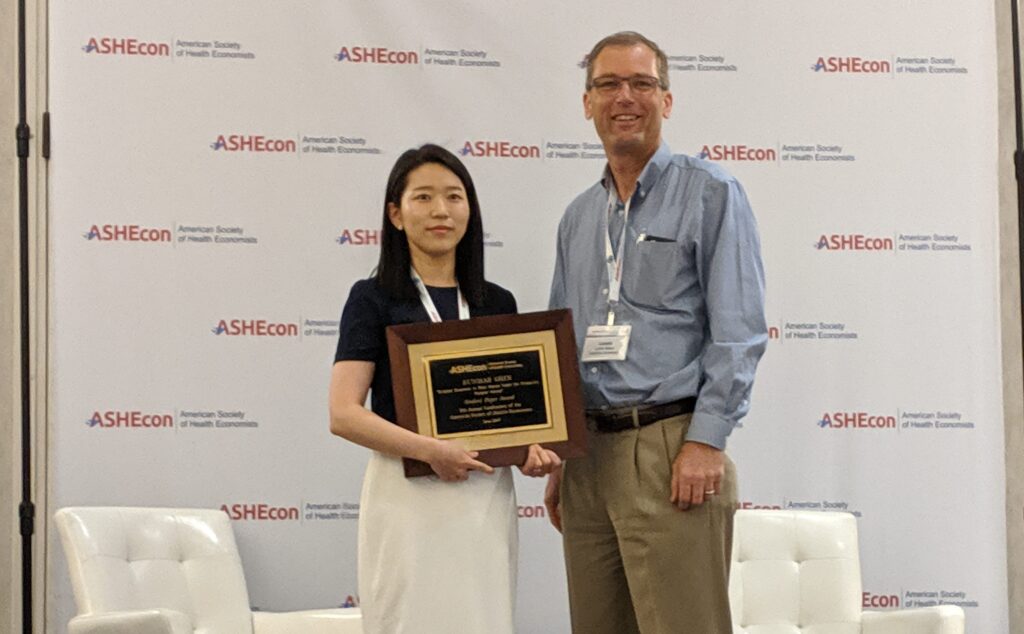Eunhae Shin was honored with the 2019 Student Paper Award from the American Society of Health Economists (ASHEcon) at the society’s annual meeting in Washington, DC on June 24. Shin received her doctoral degree in economics in 2019 from USC where she was also a pre-doctoral fellow at the USC Schaeffer Center for Health Policy & Economics.
The ASHEcon award designates the best sole-authored student paper published in the past year that makes the greatest contribution to health economics.
“This is a well-deserved honor for Dr. Shin. We are thrilled to see her receive such a prestigious award for her contribution to the health economics field,” said Romain Rancière, chair of the department of economics and professor at the USC Dana and David Dornsife College of Letters, Arts and Sciences.
Does Higher Payments Induce Hospitals to Improve Quality?
Introduced in 1984, the Medicare prospective payment system implemented bundled payments, which allow Medicare to pay hospitals one set price for entire episodes of treatment for specific diagnosis-related groups regardless of the actual costs the hospital incurs. The paper, published in Health Economics in 2018, analyzes how hospitals respond to changes in the payments they receive from Medicare as part of this bundled payments program.
While academic studies have looked at the impact of the change in the payment model, there has been little analysis on the effects of changes in payment levels under the prospective payment system. Shin used a novel research design to exploit a 2005 change in the Medicare payment level for some hospitals to examine how they respond to price changes in terms of admission volume, treatment intensity, quality of care, and outcomes.
She found evidence that paying a higher price for a given service may not prompt hospitals to offer services of better quality. Instead, Shin’s results indicate that hospitals facing a payment increase are more likely to select or shift patients into care plans that have higher bundled payment levels.
“Dr. Shin’s paper is a cautionary tale for Medicare policymakers, as hospitals — like any economic actor — respond to financial incentives in ways that are not often easily predicted or noticed” said Dana Goldman, who served as her advisor. Goldman holds the Leonard D. Schaeffer Director’s Chair and is a USC Distinguished Professor.
Schaeffer Pre-Doctoral Fellowship Program Spurred Interest in Medicare Policy
While working towards her PhD Shin received a fellowship and funding from the USC Schaeffer Center, providing her an opportunity to conduct research at the Center under the guidance of a faculty mentor. In addition, fellows can utilize the expertise of the Schaeffer Center’s extensive data core.
“Before I started my PhD program and engaged with the faculty at the Schaeffer Center, my interest in US health policy and Medicare was quite limited,” said Shin, reflecting on the role Schaeffer Center played in her career trajectory. “The support and guidance I received from Dana Goldman and Alice Chen, as well as the opportunity to become familiar with Medicare data, was critical to the development of this paper as well as my dissertation.”
This fall Shin will continue her research on Medicare policy when she joins Mathematica Policy Research as a health researcher and economist.
ASHEcon is a professional organization dedicated to promoting excellence in health economics research. Their annual conference is attended by over 700 economists from around the country.
